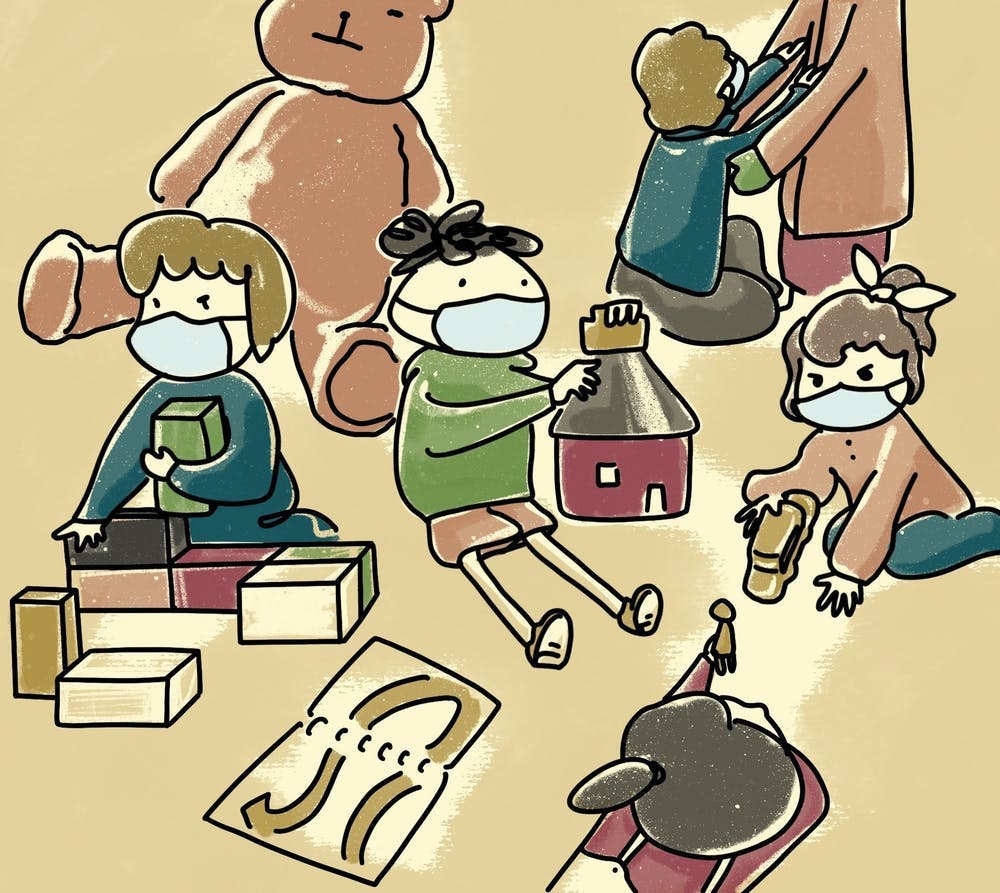In collaboration with the Office of the Provost, the Faculty Executive Committee has formed a task force on pre-K child care, as announced at the February faculty meeting by Govind Menon PhD’01, professor of applied mathematics, on behalf of the FEC.
The task force will investigate “the feasibility of a new on-campus facility for infant and toddler care,” as well as “the possibility of expanding toddler care in partnership with the Brown/Foxpoint Early Childhood Education Center,” according to an FEC report shared with The Herald by Menon.
The group is expected to submit a report to the Committee on Faculty Equity and Diversity, the FEC and the Office of the Provost by the end of this semester, according to Menon.
“Subsidized high-quality child care is a basic need for all working parents,” Menon wrote in an email to The Herald. Currently, the “lack of high-quality child care has a disproportionate impact on women, not just in the immediate years of infant and toddler care, but also in disadvantages in professional opportunities that accumulate over time.”
The need for a task force on child care was made especially evident during the pandemic, said Provost Richard Locke P’18, as schools and child care centers closed down due to public health concerns. Since the pandemic, the University has received requests from faculty, staff, postdoctoral students and graduate students asking for greater support around child care, Locke added.
Sage Morgan-Hubbard, assistant director of the Brown Center for Students of Color and member of the task force, said she believes it is the University's duty to support the child care needs of its community members because Brown is one of the largest employers in Rhode Island.
Menon, who has two children who have been enrolled in Brown-affiliated child care, wrote that he understands personally how beneficial an expansion of this service could be for families.
“As our kids made friends, the parents became friends,” he added. “These ties of community were of deep sustenance during the pandemic and are part of what make Brown such an attractive place to work.”
Dave Sobel, professor of cognitive, linguistic and psychological sciences, who is also a member of the task force, believes it will provide “fair access to affordable child care” for all members of the community. This is important not only for the “health and wellbeing of children and families, but also for ensuring equity among (Brown’s) community members,” he wrote in an email to The Herald.
Morgan-Hubbard said that she believes staff voices will play a crucial role in the group’s work. Child care is a “make or break” factor in people's decisions to come to Brown, she added.
“It is a real honest disadvantage to not have support as a parent,” said Assad Assad GS, a single parent who is pursuing a PhD in theater arts and performance studies. “It hurts children to have a parent that's stressed out and kind of rundown and maxing out their paycheck every month to pay for child care,” he added.
“I'm a single parent, and I'm low income, and it's been really hard for me to feel like I have a place in academia,” Assad said. “I have just as much merit as anyone else who got accepted to Brown, but I can't easily go to conferences (and) evening events unless I find a babysitter, which means it costs more money.”
Assad said he has previously struggled with the University’s current child care policies. He also expressed disappointment over the fact that there are no graduate students holding an active position on the task force, believing that this will lead the task force’s ultimate initiatives to be “completely unstable in the long run.”
Menon emphasized that the task force’s charge “explicitly accounts for the needs of graduate students,” who will have a chance to offer their feedback to the task force’s report once it is shared with the community. He encouraged anyone with concerns over the task force’s organization and membership to reach out directly.
Ultimately, Assad hopes the task force can take further steps to support parent-scholars.
“I've always held that Brown could do more — much more — and been confused as to why they aren't,” Assad added. “So I'm hopeful that the task force would take (this issue) up and think about why the children of grad students, staff and faculty (don’t) have more support on campus.”





